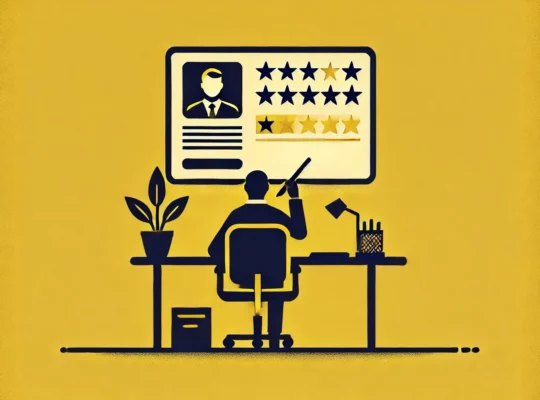E-reputation is the image that a company displays on the internet. It is formed from all the information that Internet users have disclosed online. It is therefore manipulable, not only, by the members of that company, but also by all those who have the right to express themselves on the Internet. It goes without saying that a bad e-reputation is detrimental for companies. Especially since the majority of customers choose one company over another because of its online image. To anticipate hard blows and prepare a good strategy, it is important to have an overview of your e-reputation and its actors. If you don’t know how to do it, don’t panic. Here you will get valuable tips for monitoring e-reputation.
Analyze your e-reputation
To monitor your e-reputation effectively, it must be analyzed. This analysis makes it possible not only to know the actors, but also the vectors. The actors of the e-reputation are all the Internet users who influence your reputation on the internet. These can be employees, influencers, journalists, customers , and competitors. Vectors, on the other hand, are the media used to convey information about the company. Thus, the vectors of e-reputation are search engines (especially Google), professional or non-professional social networks and online review platforms.
As a result, employees can be actors in the e-reputation of a company via a vector that is a platform of trust of employee reviews. However, not all players positively influence your e-reputation. It is therefore necessary to carry out an audit on an ad hoc basis to know the actors and their medium of expression on the internet. You’ll also get an idea of how they influence your online reputation. Thus, you will keep an eye on them and will be better able to control a bad buzz created by one factor or the other.
Use specialized tools
As we explained earlier, e-reputation is the result of all the information available online, which is related to a company. To monitor it, it is therefore necessary to comb the internet and find publications likely to positively or negatively affect e-reputation. However, the Internet is a very large network and to scan it up and down to find the information would be a grueling and inefficient task. That’s why the developers have thought of tools that do it for you.
This software collects information and analysis to provide a global overview of e-reputation. The tools used to monitor your e-reputation are numerous. But, each one has its own mode of operation.
Google Alert is one of them. It is free and is a keyword monitoring tool. The principle is simple. You choose the keywords and frequency of sending and the software sends you an alert whenever the words appear as part of a Google search. There are also paid tools that offer more options to filter information more effectively. With these, the monitoring is broader and the data is interpreted to give a clear vision of the company’s reputation.
View search results
During information monitoring, remember to test your e-reputation to know the image you send back as a brand. To do this, consulting search results is an appropriate method. Indeed, before choosing a company for the services it offers, Internet users tend to launch a search in engines like Google. When they enter the company name in the engine truncation, results appear. The latter are a reflection of the e-reputation.
In general, Internet users only consult the first results that appear, unless they are not satisfactory. To enjoy a good e-reputation, it is therefore necessary that the best referenced results on Google are positive. Consulting search results allows you to monitor your e-reputation and then consider interesting strategies to improve it. For example, producing quality content and publishing it frequently helps push negative posts down. Thus, Internet users consult content reflecting a positive e-reputation of the company. Discover: impact and challenges of your company’s e-reputation.
For search results to be effective, you have to know how to ask the right questions, the kind of questions that Internet users tend to ask about the company. Use Google Suggest to find the questions people want to find the answers to about your company.
Have a social media strategy
Monitoring is effective in knowing the image that the company sends back to outsiders. But, after monitoring your e-reputation, it’s time to learn how to enhance your e-reputation on Google and think about a social media strategy. It aims to:
- improve the visibility of the company;
- create commitment and enthusiasm around the company;
- create a large community;
- achieve a business objective.
To develop a good social media strategy, it is preferable to use the services of a community manager. But, if you prefer to set it up on your own, here are some steps to follow.
First, you need to choose which social media to use to achieve the aforementioned goals. You have the choice between blogs, websites and social networks, professional or not. To guide your choice, find out about the media most used by your targets. Thus, each of your actions in favor of the enhancement of the image will be accessible to them.
Next, you will need to develop a content strategy and an editorial line. To do this, define general and specific objectives. If possible, specify the number of times after which they should be reached. Produce targeted content (that is of interest to your community). Make sure you maintain the same editorial line from one piece of content to another. This singular style is a distinctive sign that will allow your community to recognize your content, both in tone and style. It is also important that the content and editorial line are adapted to the corporate culture.
Finally, set a schedule for publishing content on your various social media. Defining a precise timetable makes it possible to know in advance the dates of publications and to respect them. Thus, the community being accustomed to a certain periodicity expects to see new content by connecting on your media. Publishing periodicals online is also a way to retain your readers.
Monitor customer review aggregators
Customer reviews can be an asset when customers are satisfied. But, they represent a nightmare for companies when customers are unhappy. Indeed, it only takes one unfavorable comment to ignite the web and cause a crisis within the company. It is therefore necessary to monitor customer reviews. The monitoring of these reviews goes through that of customer review aggregator sites. These are specialized sites (such as TripAdvisor) or not that bring together a lot of Internet users. As a result, they have a definite impact on the e-reputation of companies.
Since no business is immune to bad reviews, it is necessary not only to monitor customer review aggregators, but also to have an effective communication strategy to respond to feedback from unhappy customers . To begin, read the unfavorable review and identify the crux of the problem. Then look for alternatives to solve the problem effectively.
For example, you can find a courteous response to the comment, offer to replace a product, offer to refund a service. Finally, be humble by sometimes asking what could be done to improve the service. Thus, the unhappy customer will feel considered and listened to. This also helps to improve the brand image . Here’s how to understand a company’s brand image.
If you find that a comment is false, unfounded and that you can prove it, you will benefit according to the site from the right to be forgotten. The comment will therefore simply be deleted and will no longer have a disastrous consequence on your e-reputation.
Entrust the management of e-reputation to specialized agencies
E-reputation is cited by customers as one of the most decisive criteria in choosing a company. Therefore, it has a lot of impact on its sustainability. This is why it is always preferable to entrust the management of your e-reputation to agencies specialized in the field. These agencies operate in different ways to help businesses. But, typically, they start their work with online reputation monitoring. During this stage, they identify the actors and vectors of e-reputation. With this information, they have an idea about the vectors and potentially the actors who can trigger a crisis.
Specialized agencies are moving to competitive intelligence. It allows you to know the companies that evolve in this sector of activity and to see the image they send through their e-reputation. After this preliminary work, they put in place a strategy of permanent monitoring and improvement of the e-reputation. Discover the steps to create your e-reputation strategy. For greater efficiency, agencies can also provide for a crisis management strategy. It is then put to the test to prove its effectiveness. Thus, as soon as a crisis occurs, the crisis management committee resumes its service and reduces its impact.
Managing your company’s e-reputation requires skills that not everyone has. This is why agencies specializing in e-reputation management exist. They are numerous, but they are not equivalent. In this plethora of providers, it is sometimes difficult to separate the good grains from the bad and find the agency you need. We therefore offer you some useful tips for choosing the right providers. First, find out if the agency offers short-term or long-term support. Depending on your needs of the moment, you can define the duration that suits you.
Also ask yourself about the effectiveness and practical benefits of the solution that the agency brings you. Implementing an e-reputation management strategy requires resources. The agency you choose must have these resources in sufficient quantity to successfully accompany you. To guide your choice, also find out about the agency’s mode of action: does it offer training sessions? Are they adapted to your knowledge needs? There are so many questions to ask.
FAQs
How to effectively monitor the e-reputation of your company?
To effectively monitor your company’s online reputation, it is essential to start by analyzing this online reputation. This involves identifying the actors and vectors that influence this reputation. The actors are Internet users such as employees, customers, influencers, journalists, and competition. Vectors are the media used, such as search engines, social networks and online review platforms. Then, it is recommended to use specialized tools such as Google Alert to collect and analyze the relevant information. Finally, regularly consulting search results allows you to monitor e-reputation and consider strategies to improve it.
Why is it preferable to entrust the management of e-reputation to specialized agencies?
E-reputation management is crucial for the sustainability of a business, as many customers choose a company based on its online image. Entrusting this task to specialized agencies offers several advantages. These agencies start by analyzing and monitoring the e-reputation, identifying the actors and vectors that can trigger a crisis. They then establish a strategy for ongoing monitoring and improvement, including crisis management when necessary. The agencies have the expertise and resources to support the company in managing its e-reputation in an efficient way and adapted to its specific needs.





